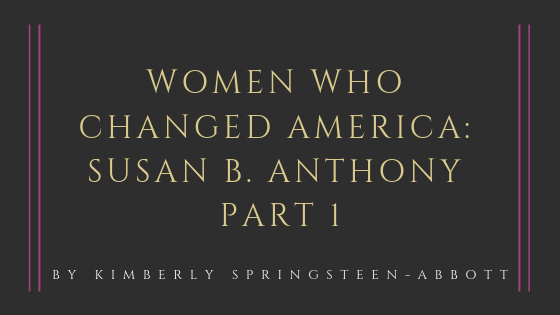Woman of Many Roles
Apart from her woman’s activist roles, Susan B. Anthony also lead crusades in the abolishment of slavery, labor rights, educational reformation, and temperance. The injustice she witnessed in her younger years in regards to women’s rights and other women’s issues sparked off a life of campaigns and rallies decrying social injustice in all its forms.
Teacher & Educational Reformer
Susan completed her formal education at the age of seventeen and then became a teacher and head of the girl’s department at Canajoharie Academy soon after that.
She was later fired for speaking out against her low salary – Susan did not agree that she should be paid less than a man because of the simple fact that she was a woman.
After her dismissal, Susan soon began her public admonition of lower pay for women by speaking out against it at a teacher’s convention in 1853. There she pronounced the idea that women should have equal pay for equal work within the educational field as well as hold higher positions like board & committee memberships within the educational arena.
It should be noted that Susan did not just fight for the rights of women within education but also for those who were enslaved. She felt that all, regardless of race, sex, and social standing should be allowed to receive a public education at the very least.
Susan’s education reformation highlights were vast. She promoted the idea of coeducation for both boys and girls with the aim of proving that the minds of men and women were not different but equal. She also served on the board of trustees of Rochester State Industrial School. Successfully she raised $50,000 for women’s admission into the University of Rochester in the 1890s, and at last women were admitted in 1900.
Abolitionist
Even before her educational reformation activities, Susan along with her family, brothers Merritt & Daniel, began speaking out against slavery.
During 1856, Susan joined the American Anti-Slavery Society. Here she was responsible for creating speeches, organizing rallies, distributing leaflets, and helping to put up posters.
Later in 1863, she assisted in organizing the Women’s National Loyal League whose main aim, along with increasing women’s rights, was to promote the Thirteenth Amendment making slavery illegal.
Later, in 1868, Anthony also began a newspaper, The Revolution, where she published multiple articles on equal rights for each and every American Citizen, including those who were enslaved. She also spoke out against the horrific practice of lynching and racial prejudice as a whole within her newspaper during this time.
To access part 2, click here.

